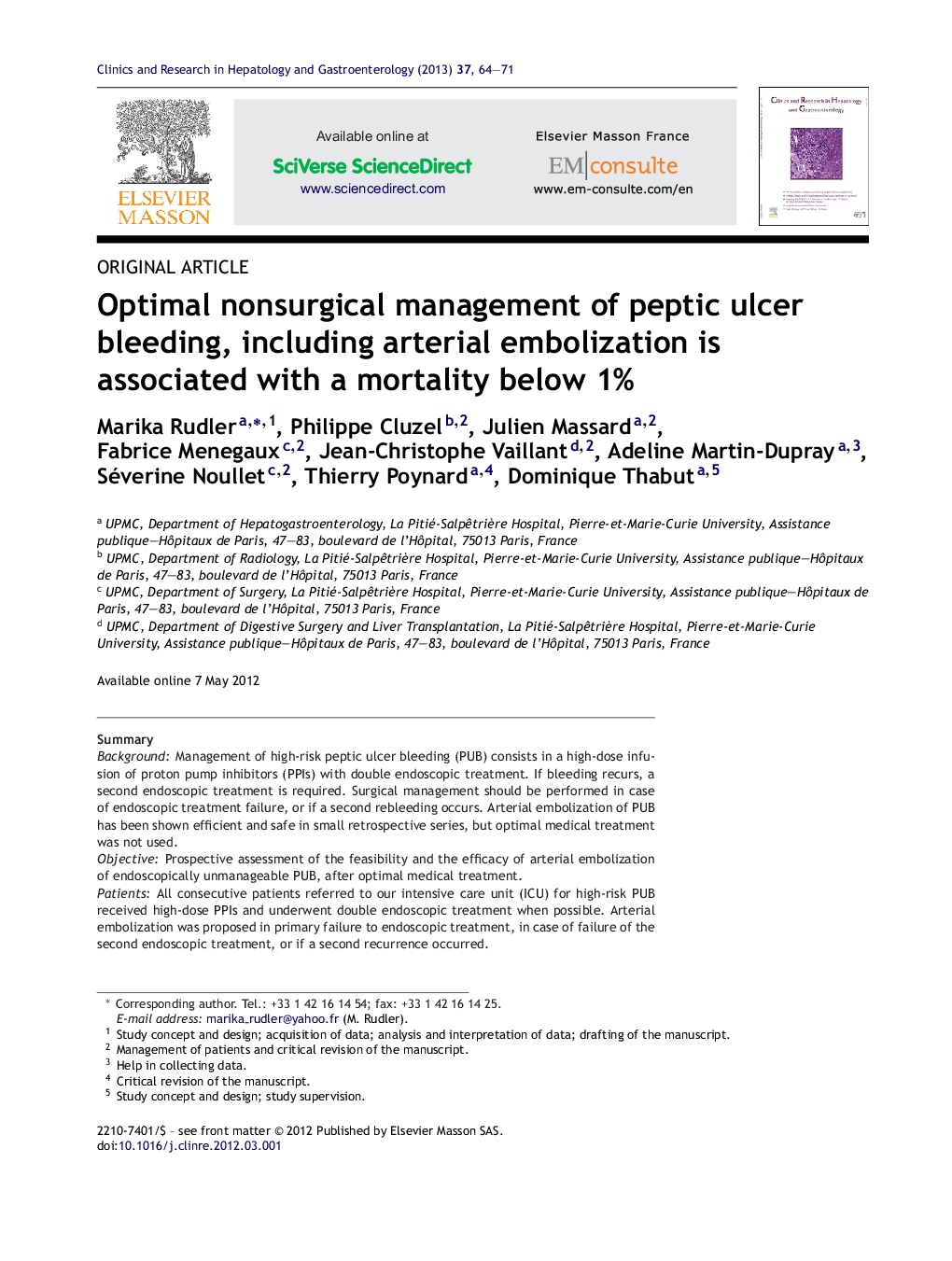| Article ID | Journal | Published Year | Pages | File Type |
|---|---|---|---|---|
| 3286762 | Clinics and Research in Hepatology and Gastroenterology | 2013 | 8 Pages |
SummaryBackgroundManagement of high-risk peptic ulcer bleeding (PUB) consists in a high-dose infusion of proton pump inhibitors (PPIs) with double endoscopic treatment. If bleeding recurs, a second endoscopic treatment is required. Surgical management should be performed in case of endoscopic treatment failure, or if a second rebleeding occurs. Arterial embolization of PUB has been shown efficient and safe in small retrospective series, but optimal medical treatment was not used.ObjectiveProspective assessment of the feasibility and the efficacy of arterial embolization of endoscopically unmanageable PUB, after optimal medical treatment.PatientsAll consecutive patients referred to our intensive care unit (ICU) for high-risk PUB received high-dose PPIs and underwent double endoscopic treatment when possible. Arterial embolization was proposed in primary failure to endoscopic treatment, in case of failure of the second endoscopic treatment, or if a second recurrence occurred.ResultsOne hundred and twenty-eight patients with PUB were enrolled between January 2008 and December 2009. Arterial embolization, performed in 11 patients, was efficient in nine patients. Surgery was performed in two patients (one after inefficient embolization, and one with embolization-related complication). One patient died during hospitalization.ConclusionArterial embolization seems to be efficient for endoscopically unmanageable PUB. In our series, one patient developed severe complication related to the procedure and died. If arterial embolization could be proposed before surgery in case of refractory PUB, large prospective studies are needed.
